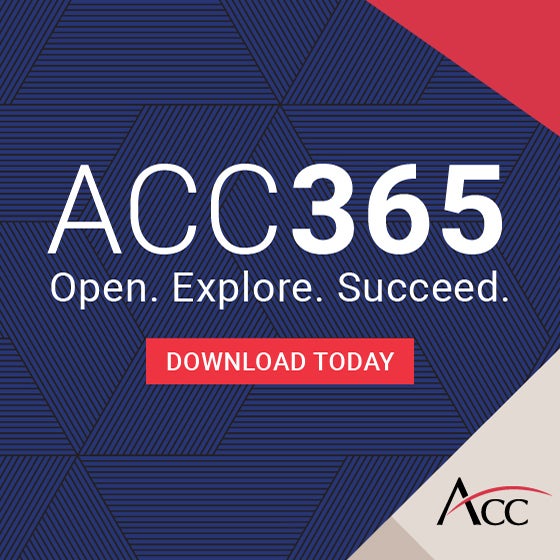Member in the Spotlight
This month we shine the spotlight on Ashe-lee Jegathesan, Group General Counsel & Company Secretary for Vocus Group Limited. Ashe-lee shares some wonderful advice for in-house counsel in building relationships with their organisations.
Tell us about your current role.
Current role:- General Counsel & Company Secretary for Vocus Group Limited. This role encompasses the Group ESG, Risk and Regulatory functions as well. For a period of 12 months last year, I also had oversight of the Group HR function within Vocus. It’s a very broad role, touching on almost every aspect of the business. The ESG function also gives me the ability to have an impact leading Vocus’ CSR initiatives and the development of our ESG strategy. I’ve held this role through an incredibly interesting and challenging time in the Vocus journey, through its merger with M2 Group and the subsequent challenges of integrating both operational and cultural elements of a “merger of equals”. The highlight of this role for me has been the opportunity to have a significant impact through a seat at the table, as well as a true partnering relationship with each of the CEO (there were 3 through my time at Vocus), and the Chairman (there was also 3 of these through my time at Vocus).
What do you believe is the most important skill an in-house lawyer needs?
Ability to take a step back, view the situation (to see the forest rather than the trees) and then have a balanced, independent, clear and concise response or solution.
What led you to pursue an in-house legal role?
I wanted something more commercial, with an operational bent, that would allow me to impact business outcomes and help drive revenue generation. I had had the privilege of working on some great deals whilst in practice by this stage, and could see the role that an in-house counsel could play in helping management teams execute their strategies effectively, and thought that I would not only really enjoy this, but also bring something to that equation. I always felt a little like a square peg in a round hole in legal practice, and having been lucky enough whilst working at Maddocks to be able to spend 18 months in a business development focussed role, I really wanted to explore the opportunities an in-house role could offer.
What advice would you offer to in-house counsel in building relationships with their organisations
I couldn’t stress more the need to build great working relationships with not only your managers, but also across the business. The Legal team is one of the few teams within an organisation that has the reach and spread, as well as the capacity to influence, across the various business divisions and functions. The best way to be able to add value and have influence is for your stakeholders to trust your counsel. These relationships will also give you the opportunity to have a seat at the table, and to be a stakeholder, rather than simply a trusted advisor. As a stakeholder, you have a voice that helps the business achieve the best outcomes it can. Take the time and effort to invest in building these relationships – get to know your stakeholders as people and as individuals. See yourself as their partner, not just their advisor.
What is the one thing a law degree doesn’t teach you about being an in-house lawyer?
The “soft skills” that are critical to success as an in-house lawyer. One of the big differences I found is that when you’re in private practice, when someone comes to you for advice, they’re either a lawyer themselves, or they’ve decided they need your advice because you are a specialist in an area they are not. When you’re in-house, you need to build a sufficient relationship of trust and circle of influence, that business stakeholders and your peers will come to you for that advice. They won’t always think of it, and they won’t always think they need a lawyer. You need to be able to be empathetic when needed, strong and vocal when the situation requires, a tough negotiator as well as a collaborative peer.
What are the biggest changes you’ve witnessed across the legal sector since you joined the profession?
The introduction of technology both in automation and AI, and the change in the expected role of in-house lawyers from being part of the “facilities / administration” function to being a key stakeholder and counsel with a seat at the table.
Finish this sentence…. If I wasn’t a lawyer I’d be…. Travel writer!
I like being a part of the ACC Australia community because …….
The role of an in-house lawyer can be a lonely one, especially if you are in very small team or in a sole legal counsel role. You’re not able to walk down a corridor to talk to another lawyer. You might be the only lawyer amongst your colleagues and not have your own network to workshop a curly legal problem. Being part of the ACC community means that you have a network that you can call on, access to not only resources but also access to thought leadership, mentors, and someone to bounce your thinking and ideas. It’s also a great group of people to have fun with!


